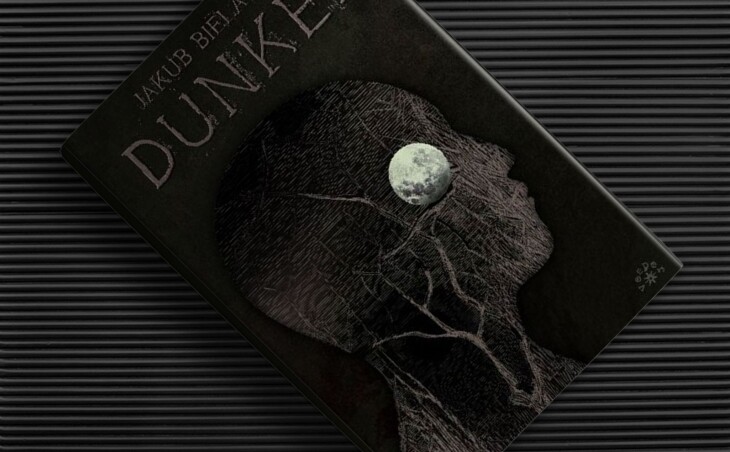Horror, fantasy or the poetic voice of the third generation? Dunkel is all of this, it is also part of the new peasant trend, which is reborn in Poland from time to time.
The grandfather’s darkness
The title Dunkel is a personified darkness, a deity who loves people but brings them misfortune. This is a curse that stretches for generations. He lives in the shadow of the Owl Mountains and Ciszyca, Eulengebirge and Ruhberg. Was he always there? Did he come with the displaced? Does it matter?
The only important thing is that he chose four people whose fates are intertwined with darkness, so that he would experience them as strongly as possible. To create a man for his needs, beautiful with pain. Craved, defeated, evil. As a seasoned writer knows, an interesting hero is one for whom the author is mean, whose life experiences and shapes him to give him the nobility of a ship tossed by storms, a pine tree twisted by the wind over a precipice, a poor man with a net of interesting wrinkles. Shaping one man is a profit for years, because Dunkel will stay in the family for generations to come.
Great fear
In one of the interviews, Jakub Bielawski says that one of the inspirations that ultimately led to Dunkel was Marcin Zaremba’s historical book about the end of World War II and the first years immediately after it. However, the novel grows mainly from the stories of grandmothers and grandparents. The author processes them thoroughly – sometimes metaphorically, at other times he sticks to other people’s testimonies, gives them therapeutic value, the aesthetics of a horror or a dark fairy tale. In this respect, it is close to Twardoch’s writings, from which he also takes his motto. When it comes to putting together the poetics of parables, dreams and facts, Dunkel is closest to Radek Rak’s Tale of a Serpent Heart .
Bielawski opowiada o traumie dziedziczonej przez drugie i trzecie pokolenie. Powiecie, że tego było już naprawdę sporo, z dzieł poważnego kalibru chociażby Maus, Idąc rakiem. O powojennych przesiedleniach piszą reporterzy wydający teksty w Czarnym czy Dowodach na istnienie. Z mniej dramatycznych odsłon wspólnej pamięci babciowo-wnuczej jest Lala Dehnela. Na szczęście Dunkel to powieść napisana dobrze, oryginalnie. Ma w sobie litanię powtórzeń i przesłyszeń, bo jej narrator wcale wszystkiego dobrze nie pamięta, a na pewno nie rozumie. Gdybyście chcieli podać dalej wspomnienia dziadka, też pomylicie fakty i bohaterów. Kto właściwie poparzył się wrzącym rosołem? Czyj wujek wyjechał do Kanady i nie wrócił? A może to była Argentyna? Kto mieszkał przez płot, a kto przez ulicę od tego najważniejszego, jedynego prawdziwego domu?
Dunkel nie skupia się na wspominaniu utraconej ojczyny – wtedy byłby pewnie jasny i słodki, a nie mroczny i gorzki. To historia wypędzenia, czy raczej przypędzenia ludności Rusińskiej na Ziemie Odzyskane, masowej migracji za gospodarką i murowanymi domami, za pracą w porzuconych fabrykach. Pojawią się tu wojenne i powojenne dzieci, na które rodzice nie mieli miejsca pomiędzy własnymi traumami i głodem. Małych brutali, z których wyrosną duzi alkoholicy, po latach zyskujący status dziadka, nawet kochanego. Czy wnuk, wychowany w czasach dostatku i spokoju, mógłby obdarzyć miłością kogoś złego?
Pamięć w trzecim pokoleniu
The inheritance of fears completely inadequate to the times when they speak up again is a great topic of the 20th century. Bielawski adds his thread to it, which often breaks off, meanders, with no moral to it. On the other hand, it fits beautifully into new Polish literature, somewhere between Twardoch and Grynberg , between fiction and interview.
Dunkel reads slowly, that’s for sure. It has a lot of repetitions, which are supposed to be spells recalling events lost in memory, many questions and changes of perspective, from divine or devilish to human and back again. If it’s horror, it’s psychological. Fantasy, as long as it is dark, not-so-so fairy tales like Drach . Finally, it has about as much of a document as Nieczuła or the Blue Cat, which, based on testimonies and memories, take the reader on a dreamlike journey through impossibilities. Bielawski wrote something for the third, even fourth generation, which we can listen to, which our inherited darkness will often resonate with.

